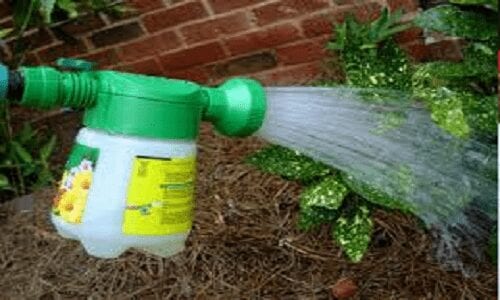Nigeria to end fertilizer importation by 2023 – Citing the over 33 fertiliser blending plants across the country, currently producing about five million metric tonnes (MT) of fertilizer annually, with many more underway, the Minister of Agriculture, Sabo Nanono, has expressed optimism that Nigeria would have no business importing fertiliser by 2023.
According to him, the Food and Agriculture Organisation (FAO), estimates that the country requires about 7million MT of fertilizer annually, and with the current production of 5million MT, the government had to grant waivers to some fertiliser plants to import the product.
He said with the enabling environment provided for private sector investors, through the National Fertiliser Quality Control Act 2019, Nigeria may end the product importation in the next two years.
Nanono spoke at a three-day workshop with industry stakeholders on, “the Operationalisation of the National Fertiliser Quality Control Act 2019,” on Tuesday, in Abuja.
He said: “In the next two to three years, we may not need to be importing any fertiliser again into the
country. More importantly, I want the blending plant to know that we can produce up to the capacity that we need. What we need to do is to fill in the gap, and take the product to the farmers.”
He said with the Fertiliser Quality Control Act fully in force, private sector players would need to obtain certificates of registration or sales permits after payment of some prescribed fees/charges before being allowed to operate any fertiliser business in Nigeria.
He said the fees were the least when compared to other related-sub-sectors and agencies, and the ECOWAS sub-region.
The minister said the primary goal of the Fertiliser Regulatory System is to increase agricultural productivity for national food security, which can only be achieved through the provision of quality fertilisers and other key farm inputs.
He said the system would eliminate the cases of fertiliser sharp practices across the country in the areas of nutrient deficiencies, adulteration, misleading claims, and lower weight, among others.
He added that the Act would also protect private investments by manufacturers, blenders or distributors as well as other service providers along the fertiliser value chain.
Read also: NBS: Nigerian capital importation hit $5,854.38m in Q1
A legal consultant, who developed the Act, Prof. Yemi Akinseye-George, while presenting the Act, said the legal regime is a government instrument for ensuring that private operators (blenders, manufacturers) produce quality fertilizers.
He added that the law makes regulation to prevent abuses such as fertilizer adulteration, and ensure proper labelling, and branding, as blenders are not allowed to mix fertilizer with sand or other products.
He explained that under the new law, fertilizer adulterators are liable to five years imprisonment without an option of fine, adding that Magistrate Court has now been given the jurisdiction to try cases of fertilizer adulterators unlike in the past where only the High Court had the jurisdiction.
He said the Farm Input Support Department of the Federal Ministry of Agriculture and Rural Development, is responsible for the implementation of the Act, which means the National Agency for Food and Drug Administration Control (NAFDAC), no longer has the power to regulate the sub-sector.
Representative of the Office of the Nigeria Security Adviser (NSA), Okigbe Sunday, noted are usually angry at blenders, who operate with expired licences, and divert products to unauthorized places.
He assured that the Office is always out to support blenders and farmers to ensure that food security is guaranteed.































